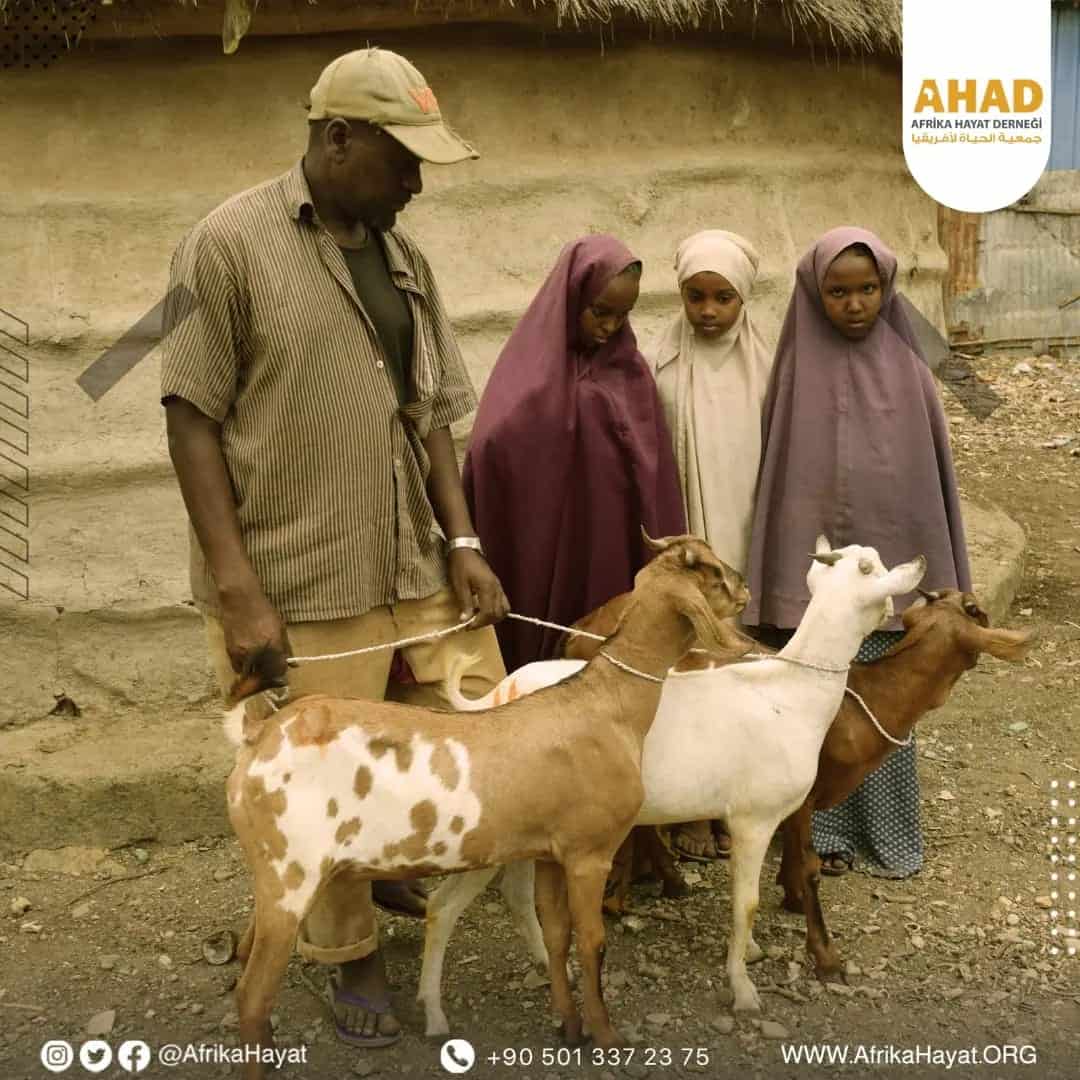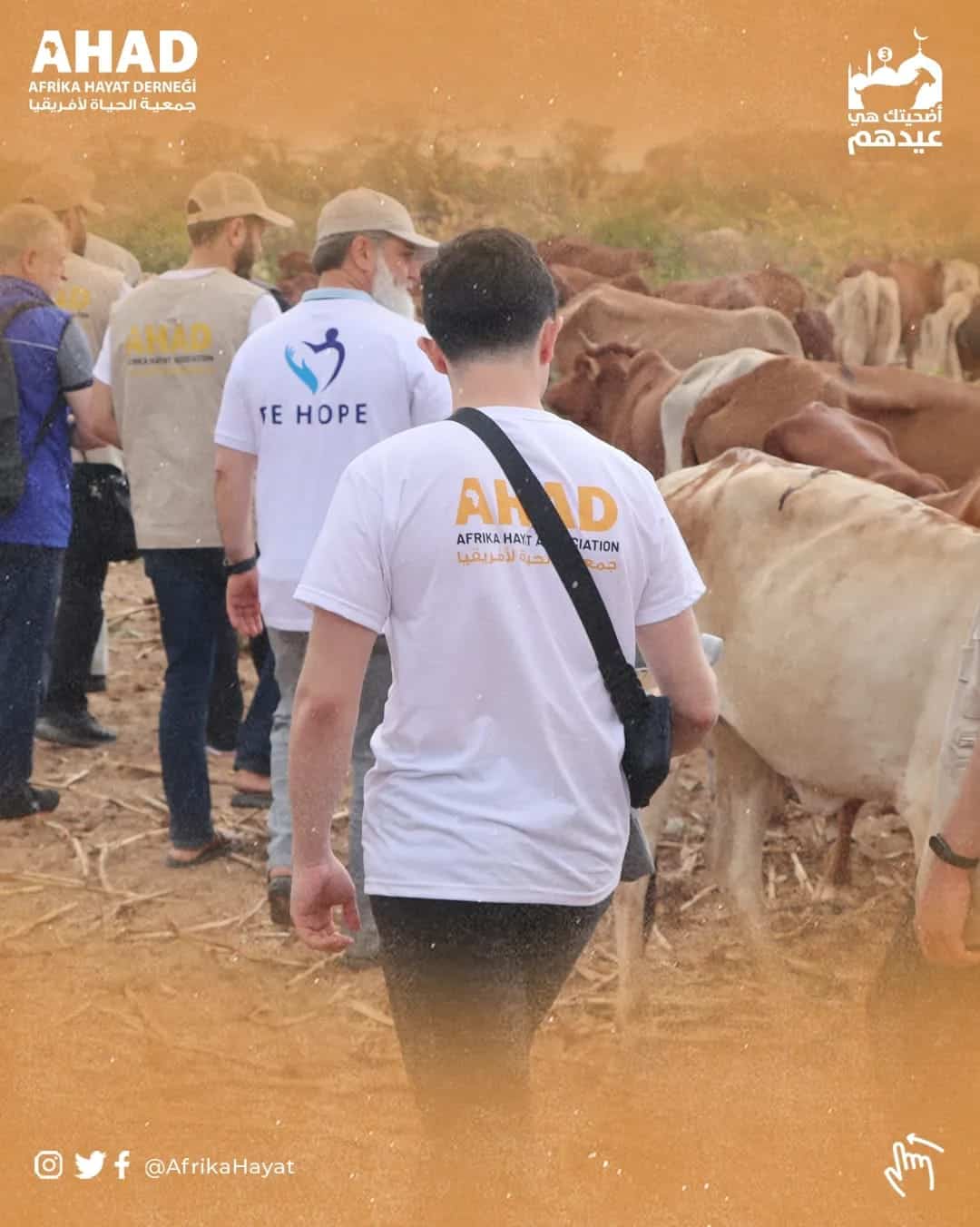Livestock keeping is a part of life to many around the world, making it easy for families to get a living by rearing livestock such as cattle, goats, and sheep. It offers many families with source of income and much-needed nutrition and a means to improved standards of living from the sale of animal products like meat, milk, and other valuable commodities. The article looks into the significance of livestock farming, requirements necessary for growth, and the contribution of welfare organizations to ensure the advancement in this area.
Securing Livelihoods Through Livestock Farming

Livestock farming is a very important source of income and food for many people and families. This sector, however, is very susceptible to major setbacks in the form of feed shortages and antiquated methods. Donations and charitable support are very essential in empowering this sector through much-needed equipment, feed, and training to make the practice of raising livestock more productive and sustainable.
Basic Needs for Livestock Rearing

Nutritional Management of Livestock
A nutritional diet guarantees the health of animals and, of course, production. Actually, adding concentrate feeds with grains and proteins would improve animal growth and more production of meat and milk. Second, the supplements provide complementary protein lacking in the natural pastures, particularly when such areas are absent or in seasons of dry spells. Salt can also be provided on a regular basis to minimize some common disorders, including bloat, digestion enhancement, and many more.
also: The Cost of Building a Mosque in Nigeria
Integrated Livestock Care
Construction of appropriate livestock housing has to take into consideration herd size and prevailing climatic conditions. Animals need room for mobility and shelter from extreme weather conditions. Storage facilities for feed and other supplies should be accessible at all times. In addition, isolation facilities for sick or new animals should be provided to offer maximum care and closely monitor their health conditions.
Livestock Health
Health care is a cornerstone of sustainable livestock farming. Consulting a specialized veterinarian before starting a project is recommended to understand livestock health needs and establish an effective preventive plan. Providing a clean and safe environment for animals reduces the risk of disease outbreaks. Balanced nutrition also boosts livestock immunity, ensuring better overall performance. Furthermore, avoiding harmful chemicals helps maintain the health of animals and the quality of their products.
The Importance of Livestock Farming in Africa

- Source of Livelihood: Livestock is a source of livelihood and food.
- Adaptation of Resources: Livestock can be raised in different environments, hence maximizing the use of natural resources.
- Food Security: The livestock sector contributes to food security with high-value protein products.
- Local Economy: Livestock farming contributes to the local economy by providing an opportunity for employment.
- Drought Resilience: Livestock lessens the impact of drought by providing milk and meat during disasters.
The Role AFRIKA HAYAT Association Plays in Bringing Change into Lives in Africa

AFRIKA HAYAT Association has so far implemented various projects aimed at helping vulnerable families in Africa. The projects will help provide a sustainable source of nutrition with milk and dairy products, adding to the food security at the local level. It also assists families in establishing small-scale projects to increase their incomes and improve economic sustainability. These projects are just a living example of the organization’s active role in contributing to economic and social development in Africa.




